How to be a Good Listener
Listen
The world has changed a lot over recent years. We are all in our own little bubble consumed by our smart phones and other technology. The art of conversation can be lost on people. People can be so intent on having their opinion or voice heard that there is only ever one side to a conversation and the listening bit is forgotten. Make the world a more rounded place and listen.
20 reasons why it is important to be a good listener and xx ways to be a good listener below.
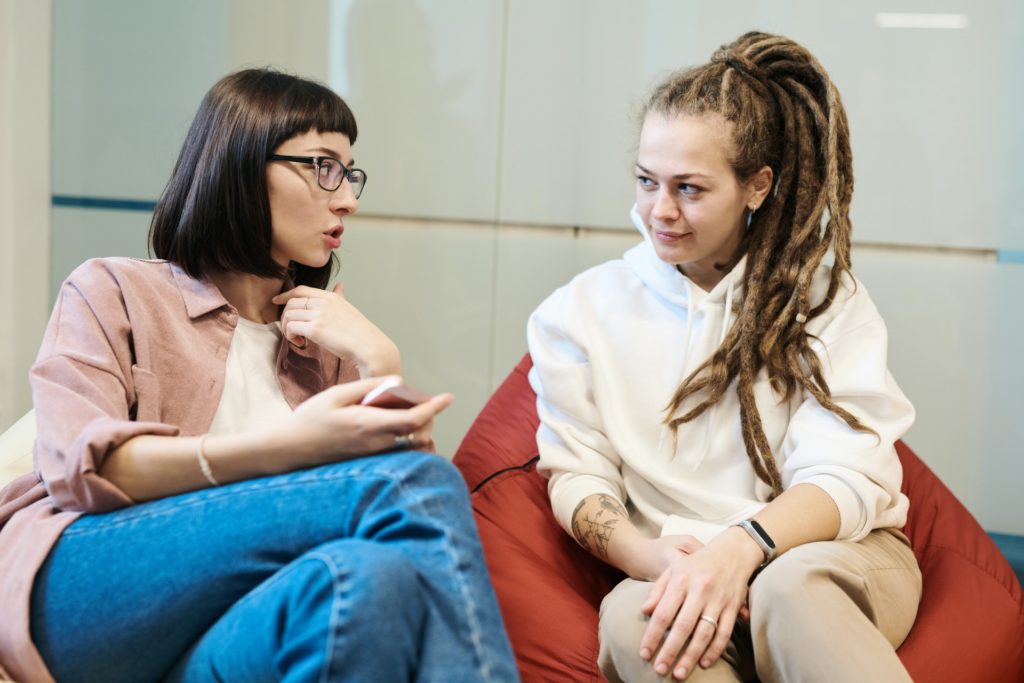
20 Reasons Why We Should Be a good listener
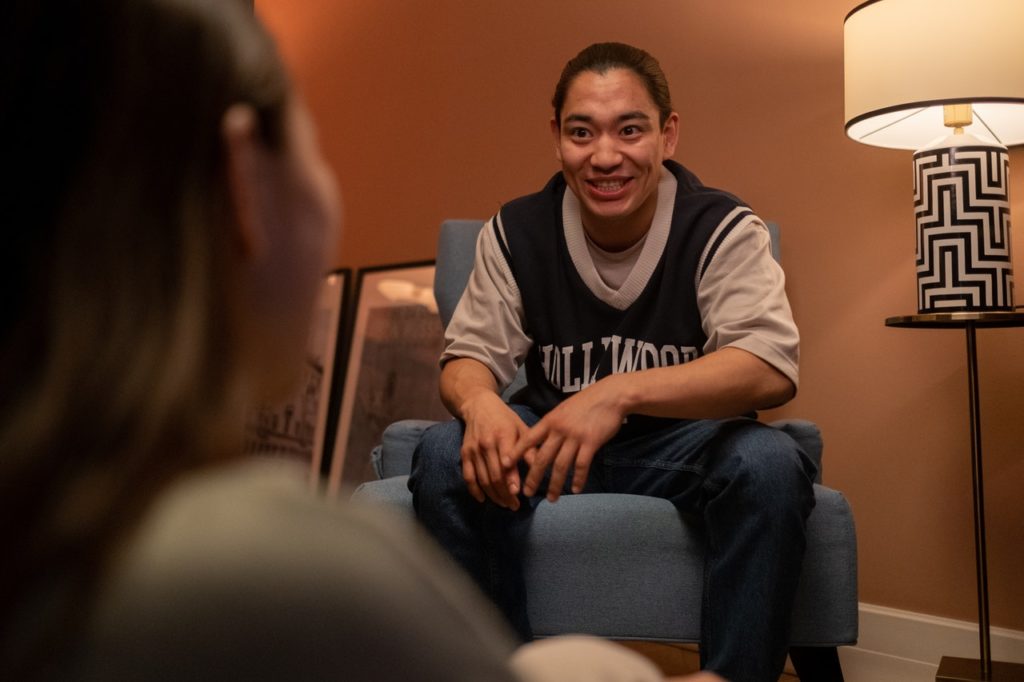
- Showing Others Respect: People maybe telling you about their hopes, fears, dreams or aspirations, show them the respect they deserve and listen.
- Being Able to Understand People: If we properly listen we can understand who people are and what they are about.
- Make Others Feel Good About Themselves: It feels good when someone listens, we can offload and know that someone genuinely cares.
- Build a Connection: If people know we are really listening to them, we build a connection with then through having worthwhile conversations and understanding them as a person.
- Builds Trust: Being a good listener means that people can depend on you and come to you when they need too. This in turn, builds trust in relationships.
- A Good Communicator: There are 2 sides to communication between people, talking and listening. Being a good listener will in turn make you a better overall communicator.
- Become More Mature: Listening helps open your mind to more points of view and general experience in life, in turn making helping us to become a more rounded and mature individual.
- Shows Maturity: Being able to listen properly shows a level of maturity in that we are not just interested in ourselves and our own thoughts but also the thoughts, opinions and points of view of others.
- Learn More: The more we actually listen, the more we learn whether that be from friends or family or in a work or study setting.
- Be More Tolerant: Listening helps to understand people, their situation and their feelings which in turn makes us more in tune to people and more tolerant.
- Have Constructive Conversations: Where both points of view are listened to and taken into account.
- Avoid Misunderstandings: Actually paying attention to what someone is saying helps to avoid misunderstandings and ensure that you don’t miss anything pertinent to a conversation.
- Have Understanding and Empathy for Others: By listening and understanding what people say you can put yourself in their shoes, understand their situation and build empathy.
- Stop Loneliness and Isolation: Listening helps us to create connections with others, lessening our chance of loneliness and isolation.
- Builds Relationships: Through deepening of connection and understanding of others.
- Resolves Conflict: Through listening to and understanding all points of view.
- Be a Better Partner / Parent / Friend / Person: A person who genuinely cares. And Listens.
- Build Patience Skills: Properly listening involves slowing down and having patience when others are talking
- Be More Likeable: People will enjoy your company if they know you actually listen to what they say.
- Be Perceived as Intelligent & Considerate: Intelligent and considerate people take the time to listen others, people will take note of these traits.
53 Ways to Be a good listener
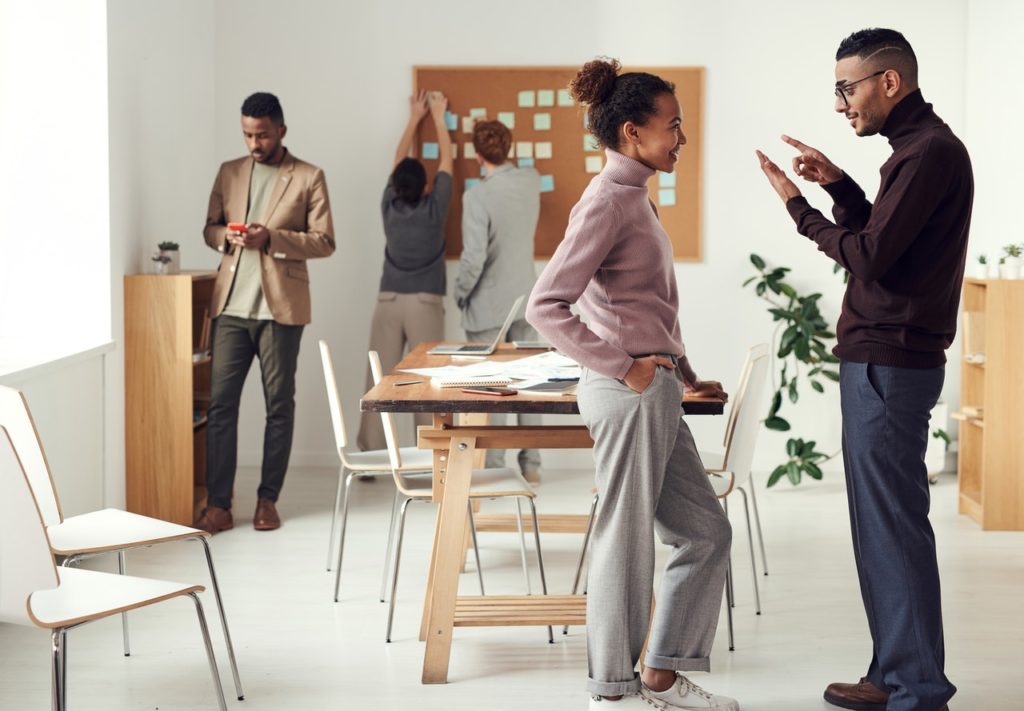
27 things to do to be a good listener, 17 things not to do to be a good listener, 7 ways to be to be a good listener and how to use active listening to be a good listener below. Further information and suggestions in the further exploration section.
28 Things to Do to be a Good Listener
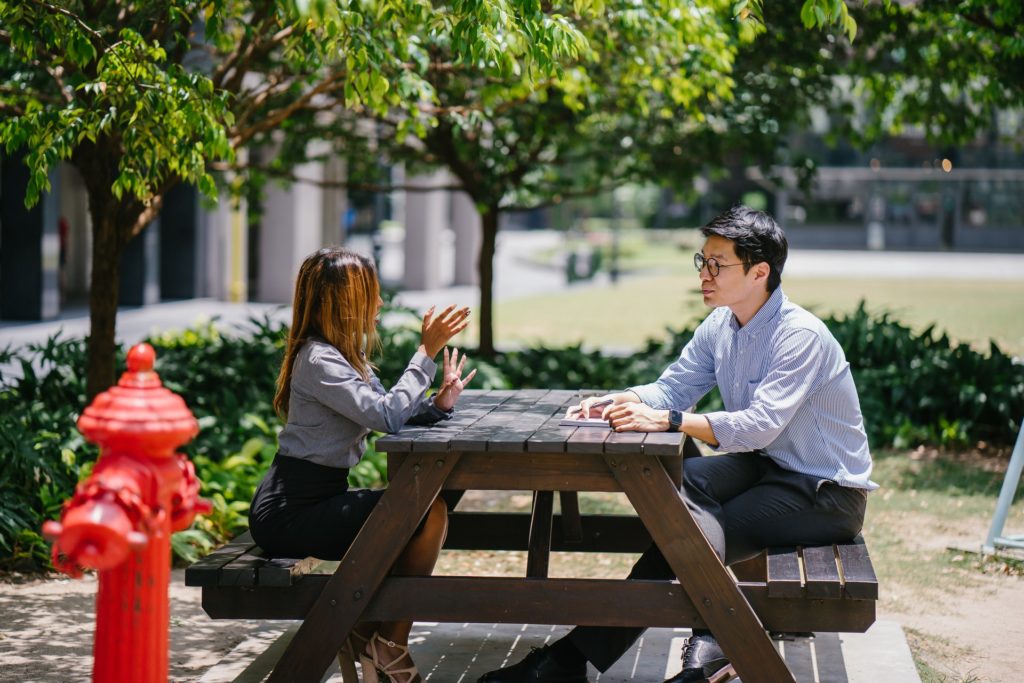
- Care: Genuinely care about who you are talking to and what they are saying.
- Ask Questions: Be interested and ask questions but ask the right questions, ones that interest you and you genuinely want to know the answer to.
- Summarize what People Have Said: Relaying what someone has said back to them (in summary form) helps to ensure your own understanding and also shows that you are actively listening.
- Show Empathy and Understanding: Enter into the world of the other person. See things from their point of view.
- Feel the Conversation: Don’t just listen to the conversation, feel the emotion that underpins it.
- Bring Up What Was Said Previously in Future Conversations: Re-use information learnt from previous conversation in future conversations.
- Sympathise (if needed): If someone is struggling, be sympathetic. Show that you care.
- Use Body Language: Using (slight) head nods, mirroring the other person’s body language and hand gestures are all good ways of acknowledging what someone is saying through non-verbal cues.
- Listen and Look for Hidden Cues: There are things that people say that have hidden meanings and undertones. Listen for changes in voice, tone or expression during a conversation, these usually point to the fact that there is something more to what the person is saying.
- Use Verbal Affirmations: Small cues like “I see”, “I understand” and “got it” at appropriate times help to show that you are listening and help the conversation flow.
- Be Curious: Be interested and curious in what people are saying and what they are going to say next. It will make the listening a lot more interesting and fun.
- Take People Seriously: If somebody is telling you something that is seriously affecting them, pay the appropriate care and attention to the conversation.
- Ask for Clarification: If you’re not sure about something that’s been said, ask. It shows that you are listening and want to fully understand.
- Maintain Eye Contact: You don’t have to constantly stare at someone whilst they are talking however not looking at someone at all will show that you are distracted and not really paying attention.
- Remove the Ego: Remove what you want from the conversation. Listen without prejudice. Leave your ego at the door.
- Reflect Back on What People Have Said & Their Thoughts & Feelings: Either during of after the conversation.
- Get Away from Your Own Thoughts: Being lost in your thoughts is one of the easiest to stop listening. Get out of your own head and focus on the conversation.
- Take Good Care of Yourself: Eating well and exercising will help you to be able to concentrate and focus better on the things that are being said.
- Let People Know That They Can Tell You Things in Confidence: And mean it.
- Offer Suggestions or Options: Having listened to what they have to say offer suggestions or options for taking things forward. Don’t try and tell them what they should do but offer suggestions to help them choose what is right for them.
- Talking vs Listening: Keep an eye on how much you are talking vs listening. If you are talking a lot more than listening then you are probably not listening properly.
- Relate to Your Own Situations: But remember they are a different person in a different world to you so it unlikely their situation will be exactly the same.
- Take Time to Let Their Point Sink In & Consider What You Are Going to Say: Don’t rush into an answer or suggestion. Take the time you need to give a meaningful answer.
- Give People the Time and Space they Need: To articulate themselves and put their thoughts and feelings into words.
- Challenge: If you don’t understand or agree with someone, challenge their point a view (in a polite way!) It may open them to viewing situations with a lens they had not considered before.
- Talk to More People / Practice: Practice makes perfect. Perfect your listening skills by listening to different types of people and conservations
- Ask Someone How They Are & Care About What They Reply: So often we say. “how are you?” and don’t really listen to the reply. Listen to it, people may have some something they need to get off their chest.
- Get Help: If you find yourself unable to concentrate or listen to what people saying, get help from either a therapist or counsellor or a medically trained doctor.
17 Things Not to Do to Be a Good Listener

- Don’t Look at Your Phone: Pretty self explanatory, if you’re looking at your phone or another distraction then you’re not listening properly!
- Don’t Have an Agenda: Listen to and respond to the conversation. Don’t try to drive it the way you want it to go.
- Don’t Interrupt: Let people finish what they are saying before responding.
- Don’t Talk Over People: As above, let people finish what they are saying.
- Don’t Guess What People are Going to Say: Listen, don’t guess.
- Don’t Think About What to Say Next: Let your response come naturally. Listen, don’t plan.
- Don’t Make Light or Belittle What People are saying: “You’ll get over it”, “worse things happen at sea” and “it’s not the end of the world” are all ways to close down a conversation pretty quickly. The person will feel that you are trying to brush over their thoughts and feelings, move on the conversation and potentially aren’t paying attention.
- Don’t Interrogate: Ask questions but don’t go over the top and start interrogating people.
- Don’t Change the Subject: There is a reason why the person is talking about that they are talking about.
- Don’t Push People: They will talk about things when they are ready to.
- Don’t Judge: Don’t moralise. People are complex, you don’t know why they have done what they have done. Just carry on listening to find out more.
- Don’t Put Your Own Spin on What People Are Saying: Take them on face value.
- Don’t Feel the Need to Fill Silence: Silence can be incredibly powerful and help people to think through what they need to say next. By always trying to fill the silence you can take that natural pause and thinking time away from someone.
- Don’t Just Say Things for the Sake of Saying of Them: Pointless and unnecessary comments will make people feel like you are not listening (and you probably aren’t!)
- Don’t Worry if you Forget a Point You Were Going to Make: Just continue to listen, if it was a good point, it’ll come back.
- Don’t Try to Offer Instant Solutions: Off the cuff, un-thought through solutions can often do more than harm than good.
- Don’t Compare Other People’s Experiences to Your Own: They may be similar but there are often nuances in people’s situations and them as a person. Don’t immediately think, “I know exactly what you are thinking / feeling” when listening.
7 Ways to be to be a Good Listener
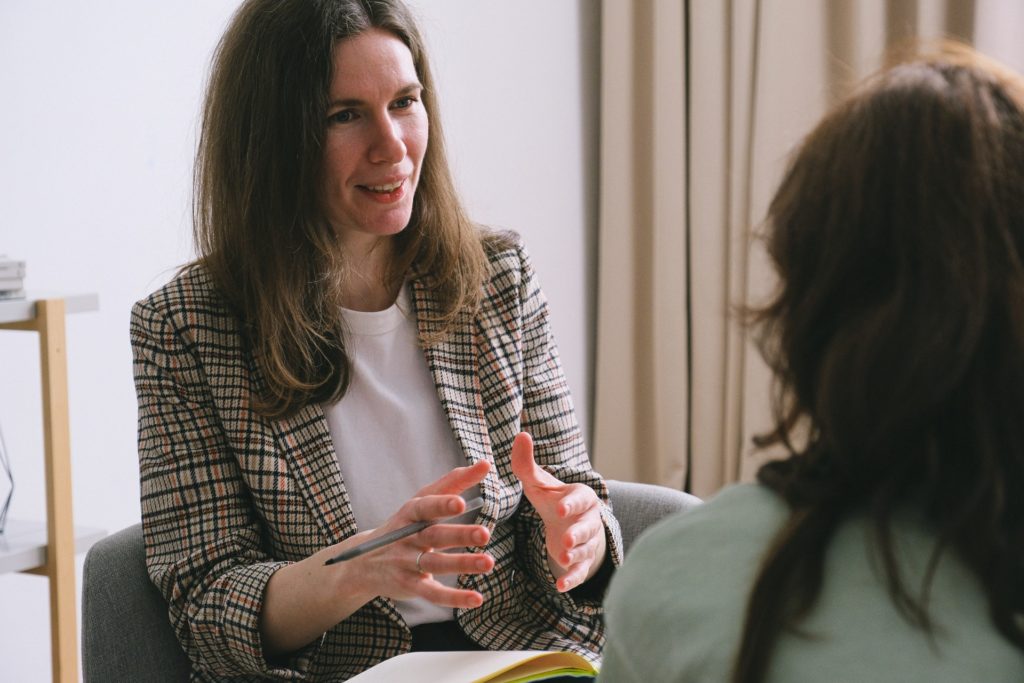
- Be Calm: It is easier to listen when we are in a calm and reflective mood.
- Be Open Minded: Even if they conflict with your own views, be willing to listen and take in other’s point of view and more importantly, why they have that point of view.
- Be Patient: Let people speak until they’ve finished. Some people may find it difficult to articulate themselves or put into words what they are trying to say. Be patient and allow people the time that they need.
- Be Honest: Don’t be harsh but tell people your views and how you relate to the situation being discussed. Add a viewpoint that the other person may not have had or thought of before.
- Be Encouraging: Both in response and encouraging people to speak in the first place. Encourage other’s point of view, it makes for a more rounded conversation.
- Be Reassuring: Listen to and reassure people about their situation
- Be Aware & Honest About Your Current Situation/Potential Limitations to your Listening: If you’re tired or have somewhere to be imminently, you won’t be able to concentrate fully on what you are being told. Be honest and tell people if you’re not going to be able to give them your full time and attention.
Be a Good Listener with Active Listening
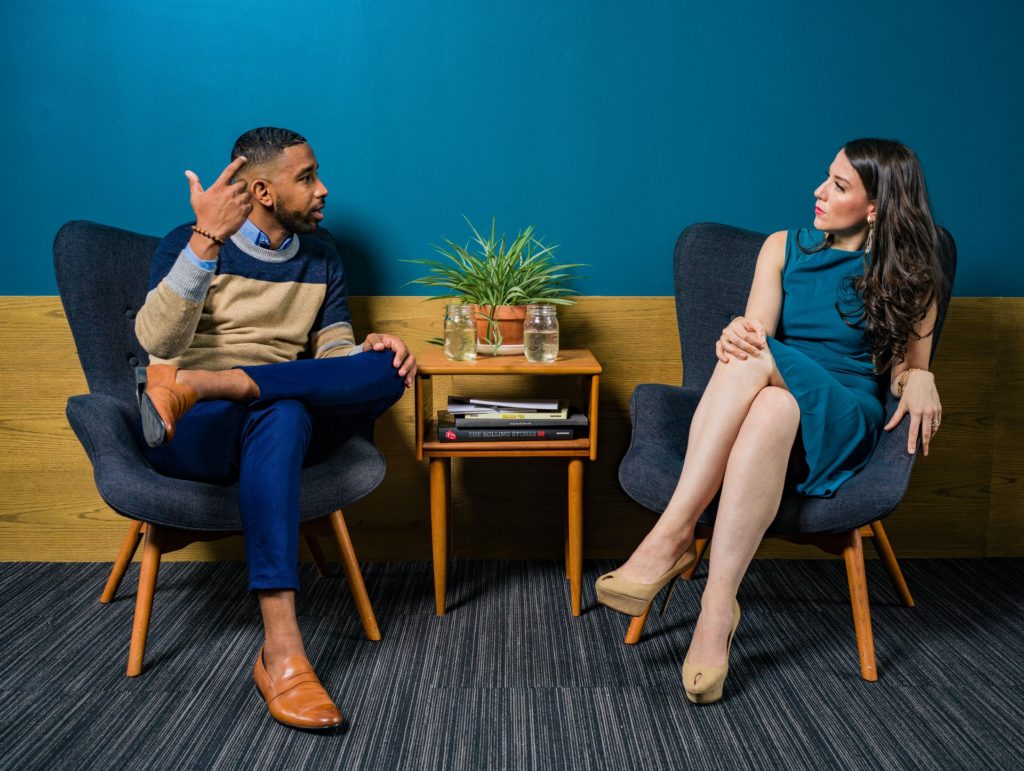
No guide to being a good listener would be complete without a mention of active listening. Active listening has many different forms and variations. A quick google search will bring up a myriad of ways to practice active listening. Below is a summary of the key traits mentioned in a number of the active listening methods out there;
- Give feedback
- Use body language
- Pay attention
- Don’t interrupt
- Ask questions
- Paraphrase what has been said
- Be patient
- Make eye contact
- Don’t change the subject
- Don’t judge
- Clarify
- Use silence
- Build trust and rapport
- Show concern
Further Exploration - Articles & Media

Wikipedia: Listening
Wikipedia article about listening including the definition of listening, how does one listen, active listening and in language listening.

Article: Why it's important to be a good listener
Artlice from Relate, the relationship people, discussing why it is important to be a good listener and providing 8 ways to be a better listener.
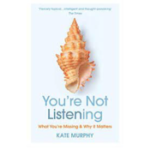
Book: You’re Not Listening: What You’re Missing and Why It Matters
Book from Kate Murphy drawing on countless conversations she has had with everyone from priests to CIA interrogators, focus group moderators to bartenders to show how only by listening well can we truly connect with others.
***This is one of the few affiliates links on Peaceful Soul***

Article: 10 Reasons Why Listening Is Important
Article from The Important Site looking at 10 reasons why listening is important including improving business relationships and helping with new languages

Article: How to be a good listener: my mission to learn the most important skill of all
Article and interview from Stephen Moss in the Guardian newspaper talking about the importance of listening to Kate Murphy, author of "You're Not Listening", therapist Gillian Rowe and Samaritans senior learning and development officer, Lucia Capobianco.

Article: Importance Of Being A Good Listener
8 reasons why we should be a good listener from Career Guide including becoming a better student and helping with public speaking

Forum: How can one become a better listener?
Quora forum with over 100 answers about how to be a better listener including understanding the other person's words, intentions and meanings & to have the best conversation possible.

Reddit: How do I become a great listener when others are speaking?
Reddit forum with over 300 answers discussing how to be a great listener including being earnest and conscious during conversations and the "Be With" style of listening.

Article: What Great Listeners Actually Do
Harvard business review article looking at what great listeners do including having a cooperative conversation and making suggestions

Video: How can one become a better listener?
School of Life Youtube video discussing the important art of listening to others properly and what it takes to be a good listener including urging clarification and separating disagreement from criticism

Article: How to Become a Better Listener: 10 Simple Tips
10 simple tips to be a better listener from The Positivity Blog including keeping in mind that listening is win/win and when listening to, just listen.
More Love Guides From Peaceful Soul

Guides
Click here for the latest Peaceful Soul relationship wellbeing guides
